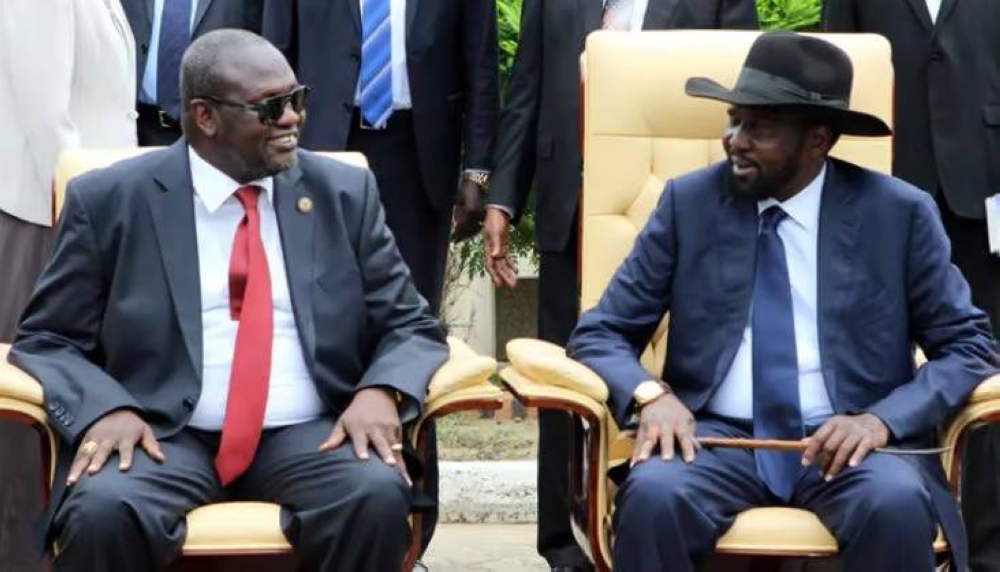
South Sudan's President Salva Kiir has held talks with political leaders to discuss the feasibility of holding long-delayed elections due to take place in December, according to his office.
The world's youngest country has yet to go to the polls, 13 years after its hard-fought independence from Sudan, to the frustration of its people and the international community.
"The presidency, along with the leaders of major political parties, has resolved to seek technical advice from the electoral institutions on the feasibility of conducting upcoming elections," Kiir's office said in a Facebook post late Tuesday.
The meeting assessed the status of the faltering implementation of a 2018 peace agreement to end a bloody five-year civil war between forces loyal to Kiir and his arch-rival and now Deputy President Riek Machar.
Cabinet Affairs Minister Martin Elia Lomuro said the review was "aimed at providing a realistic timetable for political leaders to agree upon for the elections".
The 2018 deal paved the way for a power-sharing government and laid out a roadmap for political transition and elections.
But in August 2022, South Sudan's leaders agreed to extend the transitional period for another 24 months, to February 2025, and elections have been tentatively set for December 22 this year.
However, key tenets of the agreement are still incomplete, including the creation of a national constitution and the unification of Kiir and Machar's rival forces.
Whether elections take place could also hinge on the outcome of peace talks in Nairobi between the South Sudanese government and holdout rebel groups that did not sign up to the 2018 pact.
- 'Cost of inaction too great' -The fragile nation has struggled to recover from the 2013-2018 conflict that killed 400,000 people and drove millions from their homes, and is still plagued by political instability, ethnic violence, climate disasters and corruption.
One of the poorest countries on the planet despite vast oil riches, South Sudan's struggling economy suffered another body blow when a key pipeline in its war-torn neighbour Sudan ruptured in February, sending the local currency into a tailspin and prices for basic goods soaring.
Last month, British charity Save the Children warned that parts of the country were on the "brink of famine" because of flooding during the current rainy season.
UN Secretary General Antonio Guterres said earlier this year that South Sudan had failed to achieve a "critical mass" of prerequisites for the peaceful conduct of free, fair and credible elections.
Guang Cong, his deputy special representative in South Sudan, also warned on August 8 that "time is running out".
"The cost of inaction is too great," he said.
str-txw/rbu/kjm
